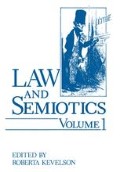Abstract
The task of articulating ‘deconstruction’ has fallen, for the most part, to literary critics and theorists. Few philosophers have addressed the work of Derrida (understood synechdochely as ‘deconstruction’) with the notable exception of Richard Rorty.5 Seen as a philosopher of philosophy, however, as Rorty describes Derrida, helps very little in the understanding of precisely how and why Derrida ‘deconstructs’ that same tradition thereby reaching the level of its conditions of possibility. In short, the questions of writing, the text, the discourse of philosophy, and the nature of rhetoric as it relates to philosophic themes have not been sufficiently addressed.
Rousseau’s text has no blind spots: it accounts at all moments for its own rhetorical mode.2 [emphasis added]
Therefore, until the contrary has been proved, it must be maintained that he was fully aware of every contradiction in the Guide, at the very time of writing the contradictory sentences. And if the objection is made that we ought to allow for the possibility that unconscious and unintentional contradictions have crept into the Guide. Since philosophers hardly inferior to Maimonides have been found guilty of such contradictions, we answer by referring to Maimonides’ emphatic declaration concerning the extreme care with which he has written every single word of his book.3 [emphasis added]
The concept of the supplement is a sort of blind spot in Rousseau’s text, the not-seen that opens and limits visibility. But the production, if it attempts to make the not-seen accessible to sight, does not leave the text. It has moreover only believed it was doing so by illusion. It is contained in the transformation of the language it designates, in the regulated exchanges between Rousseau and history. We know that these exchanges only take place by way of the language and the text, in the infrastructural sense that we now give that word. And what we call production is necessarily a text, the system of a writing and a reading which we know is ordered around its own blind spot.4 [emphasis added]
Access this chapter
Tax calculation will be finalised at checkout
Purchases are for personal use only
Preview
Unable to display preview. Download preview PDF.
Notes
P. de Man, Blindness and Insight, (Minneapolis: University of Minnesota Press), 1971:139.
Leo Strauss, Persecution and the Art of Writing (Glencoe: The Free Press), 1952:69.
Jacques Derrida, Of Grammatology, trans. Gayatri Spivak (Baltimore: Johns Hopkins University Press), 1974:163–64.
J. Harvey, Derrida and the Economy of Differance (Bloomington: Indiana University Press), 1986.
See Descartes’, Meditations, trans. F.E. Sutcliffe (Harmondsworth: Penguin Books), 1968.
See Hegel’s Phenomenology of Spirit, trans. A.V. Miller (Oxford: Clarendon Press), 1977.
See Martin Heidegger’s Being and Time, trans. John Macquarrie and Edward Robinson (New York: Harper and Row), 1962:122–34.
See Aristotle’s “De Interpretatione,” in The Basic Works of Aristotle, trans. Richard McKeon (New York: Random House), 1941:40–65.
Edmond Jabés, The Book of Questions, trans. Rosemarie Waldrop (Middletown: Wesleyan University Press), 1972:94.
Author information
Authors and Affiliations
Editor information
Editors and Affiliations
Rights and permissions
Copyright information
© 1987 Plenum Press, New York
About this chapter
Cite this chapter
Harvey, I.E. (1987). The Rhetoric of Esotericism: The ‘Challenge’ to Deconstruction. In: Kevelson, R. (eds) Law and Semiotics. Springer, Boston, MA. https://doi.org/10.1007/978-1-4613-0959-8_11
Download citation
DOI: https://doi.org/10.1007/978-1-4613-0959-8_11
Publisher Name: Springer, Boston, MA
Print ISBN: 978-1-4612-8265-5
Online ISBN: 978-1-4613-0959-8
eBook Packages: Springer Book Archive

